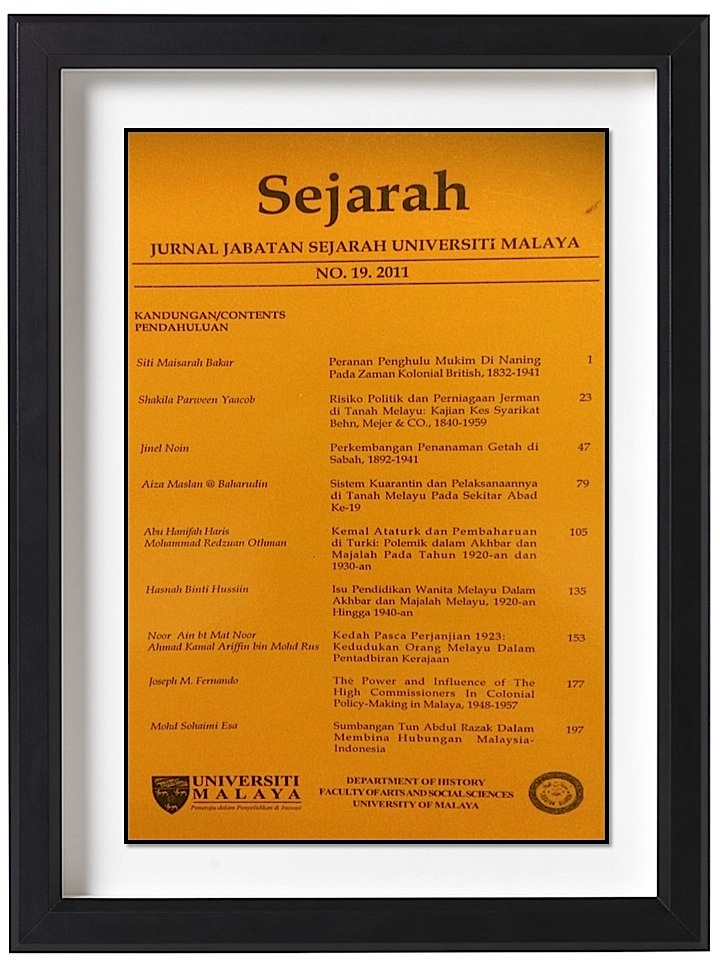SISTEM KUARANTIN DAN PELAKSANAANNYA DI TANAH MELAYU PADA SEKITAR ABAD KE-19
DOI:
https://doi.org/10.22452/sejarah.vol19no19.4Abstract
The implementation of quarantine has long left its imprints in the history of human civilization. Contagious diseases such as cholera and measles often claim a large number of victims. Thus, the earliest medical problem to become the concern of more than one government was the problem of preventing epidemics spreading from one country to another. Between the 14th and 19th century, many countries around the world already applied several methods of quarantine as a means to protect their citizens from falling victim to epidemics. The first and natural reaction of a threatened community was an attempt to isolate itself against the advancing danger. The provision for quarantines was introduced in Malaya by the British in 1858.
Beginning September 1868, new quarantine ordinances were imposed on all ships utilising ports in the Straits Settlements. The quarantine provisions in Malaya did not only involve foreign labourers, but also the pilgrims who were returning from Mecca. From isolation to mass migration out of affected geographical areas, the citizens of Malaya applied various traditional methods in their effort to curb the spread of epidemics. Various signals were put up in order to prevent entry into the affected zones. Nevertheless, the implementation of quarantines in Malaya were at times difficult to execute following the lack of full cooperation from the local citizen.






